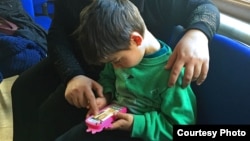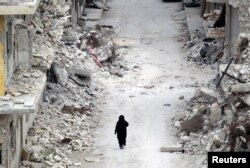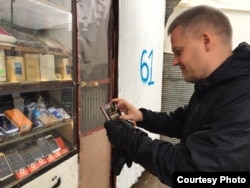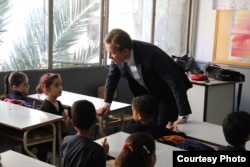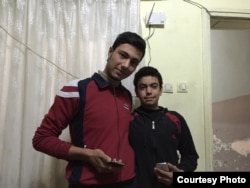The numbers are staggering—so much so that after five years of war in Syria, the mind blurs.
Estimates of those killed range from 250,000 to well over 470,000, according to the Syrian Center for Policy Research. In 2014, the United Nations announced it stopped trying to track those killed, saying it could no longer accurately confirm the number because of the war's complexity and chaos.
The destruction of Syria was summed up this way by a report released by the U.N. human rights agency released in February:
"...Civilians bear the brunt of intensifying hostilities conducted by an ever-increasing number of warring parties. As their country is reduced to ruins around them, Syrian men, women and children – often the objects of deliberate attack – are fleeing their homes in an uncertain and often perilous search for safe haven."
And this estimate: over 4 million Syrian children are not in school thanks to the war.
Enter #EduApp4Syria, a $1.7 million competition, run jointly by Norway, the United States and a small group of non-governmental organizations, to tap into the widespread use of smartphones and keep displaced Syrians learning.
It's a simple idea: use game-based learning to reach kids - displaced inside Syria or refugees - whose education has stalled.
"We went to Gaziantep in Turkey near the border with Syria and spoke to lots of Syrian families about this project," says Dr. Afl Inge Wang, who is leading the competition.
"In one home we visited, the entire family lived in one room and the youngest daughter, aged about 12, had never learned to read.
But she often played games on her older brother’s smartphone," added Wang, a professor in game based learning at the Norwegian University of Science and Technology, who co-invented the game platform Kahoot!
"Almost all Syrian households tend to own smartphones," said Børge Brende, Norwegian Minister of Foreign Affairs in an email to this reporter.
"We want to take advantage of this to make available engaging and motivational literacy learning games."
War trauma can make learning more difficult, negatively affecting memory, concentration and other more nuanced cognitive stumbling blocks.
So how does a smartphone game make a difference?
"Game-based learning can be an effective format," said Liv Marte Kristiansen Nordhaug, senior adviser for the Norwegian Agency for Development Cooperation, which supports the competition.
The sounds and animation in a digital game stimulate the brain, Nordhaug said. "The ability to adapt the challenges to the learner's level" is another factor, along with "the ability to engage and motivate...through immersive narrative and fun gameplay."
In December, two winners out of five current finalists will be chosen. The apps, all in Arabic, will work on both Apple and Android smartphones.
"We need to scale up existing efforts that we know already work—like expanding the constellation of non-formal education centers or providing stipends to Syrian teachers who can help fill the enormous demand for trained and talented instructors," said U.S. Deputy Secretary of State Anthony J. Blinken during remarks made at Standford University earlier this year.
"And we continue to need game-changing new ideas—like classrooms on wheels or extra lessons on podcast or virtual schools."
Wang is looking for apps that kids can connect with. And he warned developers not to underestimate their smarts.
"Kids will quickly detect it if standard learning approaches are dressed up as games. It’s like feeding them chocolate covered broccoli. So we want real games, with great game mechanics and narratives, that can help the children learn how to read and provide some psycho-social support."




